You'll get the most effective substance use treatment when providers combine evidence-based approaches like cognitive-behavioral therapy with personalized medication strategies. Research shows integrated care delivery systems that address both addiction and mental health yield up to 24x better outcomes. Your treatment plan should include behavioral therapies, medical support, and all-encompassing aftercare, with studies demonstrating 63% success rates for combined approaches. Understanding these key components can help you access ideal care for lasting recovery.
 Scientific evidence demonstrates that several treatment approaches effectively address substance use disorders, with each method offering distinct therapeutic benefits. You'll find evidence-based modalities like Cognitive-Behavioral Therapy (CBT), which helps restructure harmful thought patterns, and Contingency Management (CM), which rewards positive behavioral changes. These customized interventions adapt to your specific needs and circumstances. Treatment retention significantly influences positive treatment outcomes. Research shows that psychosocial treatments are vital components of successful comprehensive substance use disorder care. Research supports the effectiveness of Motivational Interviewing for resolving ambivalence about change, while Brief Interventions provide targeted feedback to reduce risky behaviors. Family therapy, particularly MDFT, addresses systemic issues affecting adolescents, while Twelve-Step Facilitation builds lasting support networks. When combined strategically, these approaches amplify treatment outcomes through skill-building, behavioral reinforcement, and sustained community support.
Scientific evidence demonstrates that several treatment approaches effectively address substance use disorders, with each method offering distinct therapeutic benefits. You'll find evidence-based modalities like Cognitive-Behavioral Therapy (CBT), which helps restructure harmful thought patterns, and Contingency Management (CM), which rewards positive behavioral changes. These customized interventions adapt to your specific needs and circumstances. Treatment retention significantly influences positive treatment outcomes. Research shows that psychosocial treatments are vital components of successful comprehensive substance use disorder care. Research supports the effectiveness of Motivational Interviewing for resolving ambivalence about change, while Brief Interventions provide targeted feedback to reduce risky behaviors. Family therapy, particularly MDFT, addresses systemic issues affecting adolescents, while Twelve-Step Facilitation builds lasting support networks. When combined strategically, these approaches amplify treatment outcomes through skill-building, behavioral reinforcement, and sustained community support.
 Building extensive support networks represents a critical foundation for sustained addiction recovery, integrating multiple evidence-based approaches that work synergistically. You'll find that peer-led services significantly improve treatment outcomes while providing cost-effective solutions through structured support and accountability. Key components of effective support networks include:
Building extensive support networks represents a critical foundation for sustained addiction recovery, integrating multiple evidence-based approaches that work synergistically. You'll find that peer-led services significantly improve treatment outcomes while providing cost-effective solutions through structured support and accountability. Key components of effective support networks include:
 Maintaining long-term recovery requires a sturdy network of community resources and support systems that extend well beyond initial treatment. Research shows that continuous monitoring and community engagement markedly improve recovery outcomes, particularly when structured aftercare programs are in place.
Maintaining long-term recovery requires a sturdy network of community resources and support systems that extend well beyond initial treatment. Research shows that continuous monitoring and community engagement markedly improve recovery outcomes, particularly when structured aftercare programs are in place.
Research-Backed Treatment Methods That Work

The Power of Combined Medical and Behavioral Care
Research consistently shows you'll achieve better outcomes when combining medications with behavioral therapies like CBT, as this dual approach targets both the biological and psychological aspects of substance use disorders. Your personalized treatment plan should integrate multiple evidence-based methods, with studies demonstrating combined therapies yield 36% higher remission rates compared to single-treatment approaches. The effectiveness matches findings from depression studies where combined treatment showed comparable success to individual therapies. Comprehensive symptom management through integrated care leads to more sustainable recovery outcomes. Behavioral therapy is particularly effective for substance use disorders, with skill building strategies being essential components of successful treatment programs. By participating in all-encompassing care that includes both medical and behavioral interventions, you're giving yourself the strongest foundation for sustainable recovery, supported by long-term efficacy rates of 63.64% in follow-up studies.Medications Plus Talk Therapy
The combined approach of medications and talk therapy represents a powerful strategy in substance use treatment, offering improved outcomes compared to either intervention alone. Evidence-based psychotherapies like CBT, when paired with appropriate medications such as naltrexone or buprenorphine, show statistically significant benefits in reducing substance use and preventing relapse. Research demonstrates that contingency management approaches exhibit superior outcomes compared to other cognitive-behavioral treatments. You'll find this dual approach particularly effective because it targets both biological and behavioral aspects of addiction. While medications help manage cravings and withdrawal symptoms, talk therapy equips you with relapse prevention strategies and coping skills. Meta-analyses involving over 9,000 participants confirm this combination's effectiveness across different substance types, with the strongest results seen in alcohol treatment. The approach proves especially valuable for patients with co-occurring mental health conditions, offering adaptable, long-term solutions for sustained recovery. Research shows that effect sizes are larger when combining CBT with pharmacotherapy compared to using CBT alone. The non-invasive and non-pharmacological nature of CBT makes it an appealing option for patients who have concerns about medication side effects.Personalized Treatment Plans Matter
While each person's path through addiction is unique, evidence demonstrates that personalized treatment plans combining medical and behavioral interventions substantially improve recovery outcomes. Your treatment success increases when providers use biological assessments to match you with targeted medications and therapies. For example, genetic markers can predict your response to specific treatments like acamprosate for alcohol dependence. A strategic advisor at Brijder-Parnassia provides expert guidance on implementing personalized addiction treatment protocols. With 40-60% of patients experiencing relapse, personalized treatment becomes even more critical for long-term success. Through ongoing data monitoring, your care team can adjust interventions based on your progress. You'll benefit from a detailed approach that includes medication-assisted treatment, cognitive behavioral therapy, and contingency management customized to your specific substance use disorder. Research shows this personalized strategy leads to better retention rates and sustained recovery, with success rates reaching 76% after three months when treatment plans align with your individual needs. Studies consistently show that combining group therapy with pharmacotherapy produces better outcomes for reducing opioid use than medication alone.Integrating Multiple Care Approaches
Integrating medical and behavioral healthcare delivers powerful therapeutic synergies that optimize your recovery potential. Nearly 70% of primary care visits involve addressing mental health or psychosomatic concerns. Through patient-centered integration and collaborative care models, you'll experience extensive treatment that addresses both physical and psychological needs simultaneously. Key benefits of integrated care include:- 24x greater treatment effectiveness compared to traditional approaches, with significant reductions in crisis events and improved life functioning
- 7% decrease in emergency department visits and 6% reduction in office visits, leading to more cost-effective care delivery
- Clinically significant decreases in depression, anxiety, and suicidal ideation through coordinated behavioral consultations
- Amplified provider competency and confidence in addressing your behavioral health needs, with medical staff reporting improved consistency in care delivery across all treatment domains
Personalized Medication Strategies for Recovery
Your genetic makeup profoundly influences how you'll respond to addiction medications, with studies showing up to 33% variation in treatment outcomes based on individual biological factors. You'll need carefully calibrated dosing protocols that account for your specific genetic markers, metabolism rates, and potential drug interactions. Using predictive biomarkers, your healthcare team can optimize medication selection and dosage adjustments to amplify therapeutic benefits while minimizing adverse effects. Continuous monitoring allows healthcare providers to make necessary adjustments to medication strategies as your recovery needs evolve.Genetic Response to Medications
Recent advances in pharmacogenetics have revolutionized substance use treatment by revealing how genetic variations influence medication responses. While oligogenic predictors like OPRM1 help determine opioid treatment outcomes, polygenic interactions involving multiple genes often explain varied responses to stimulant medications. Key genetic factors affecting your treatment response include:- DRD2 and ANKK1 variants that influence dopamine receptor density and drug craving
- CYP2D6 variations affecting opioid metabolism, with 90% of people carrying variants that impact drug processing
- DAT1 gene variations that modify stimulant medication effectiveness, particularly for methylphenidate
- OPRM1 variants that determine methadone treatment success and pain relief outcomes
Individual Dosing Protocols
Successful substance use treatment hinges on personalized medication protocols that adapt to individual patient needs and circumstances. You'll find that flexible medication access, including take-home doses, improves treatment retention while maintaining safety and minimizing exposure to unregulated substances. Effective dosage adjustments follow a three-stage approach, prioritizing nonpsychoactive interventions before considering medications with abuse potential. When you're receiving treatment, your provider will continuously monitor and modify your protocol based on your diagnosis, symptom severity, and treatment response. This personalized approach often combines pharmacotherapy with behavioral interventions like CBT and contingency management. You'll experience reduced stigma and treatment burden through home administration options, while your provider maintains appropriate oversight to guarantee proper medication use and prevent dependence risks.Building Comprehensive Support Networks

- Shifting to sober social circles that reduce relapse risks and reinforce positive behavioral changes
- Engaging in peer recovery coaching and mentorship programs that enhance treatment retention and create mutual accountability
- Participating in evidence-based group therapies like CBT and contingency management that increase abstinence rates
- Accessing community-based resources including sober living environments and culturally-aligned support groups that facilitate long-term recovery maintenance
Customizing Care Plans for Individual Needs
Personalized care plans form the cornerstone of effective substance use treatment, driven by detailed assessments that evaluate multiple dimensions of a client's needs. Through a multifaceted assessment process, your treatment team examines your medical history, mental health status, and social dynamics to identify underlying causes and potential co-occurring disorders. Your customized plan integrates holistic recovery strategies that extend beyond traditional therapies. You'll receive targeted interventions that combine evidence-based approaches like CBT or DBT with complementary practices such as mindfulness training and lifestyle reintegration programs. As you progress, your care plan evolves through phase-based adjustments, incorporating your feedback and response to treatment. This flexible approach guarantees you're receiving the most effective combination of services while addressing both immediate recovery needs and long-term wellness goals.Community Resources and Long-Term Success

Sustainable recovery hinges on robust community support networks and ongoing care - the foundation for lasting positive outcomes in addiction treatment.
- Outpatient services dominate treatment delivery, accounting for 68% of publicly funded care and showing higher success rates for alcohol and marijuana addiction
- Structured aftercare programs demonstrate better sustainability, with 89% maintaining sobriety at one month and 76% at three months post-treatment
- Multiple treatment episodes often prove necessary for lasting recovery, highlighting the importance of accessible community-based services
- Cost-benefit analyses reveal that even temporary gains through community support systems can reduce broad societal costs related to substance use and criminal behavior






